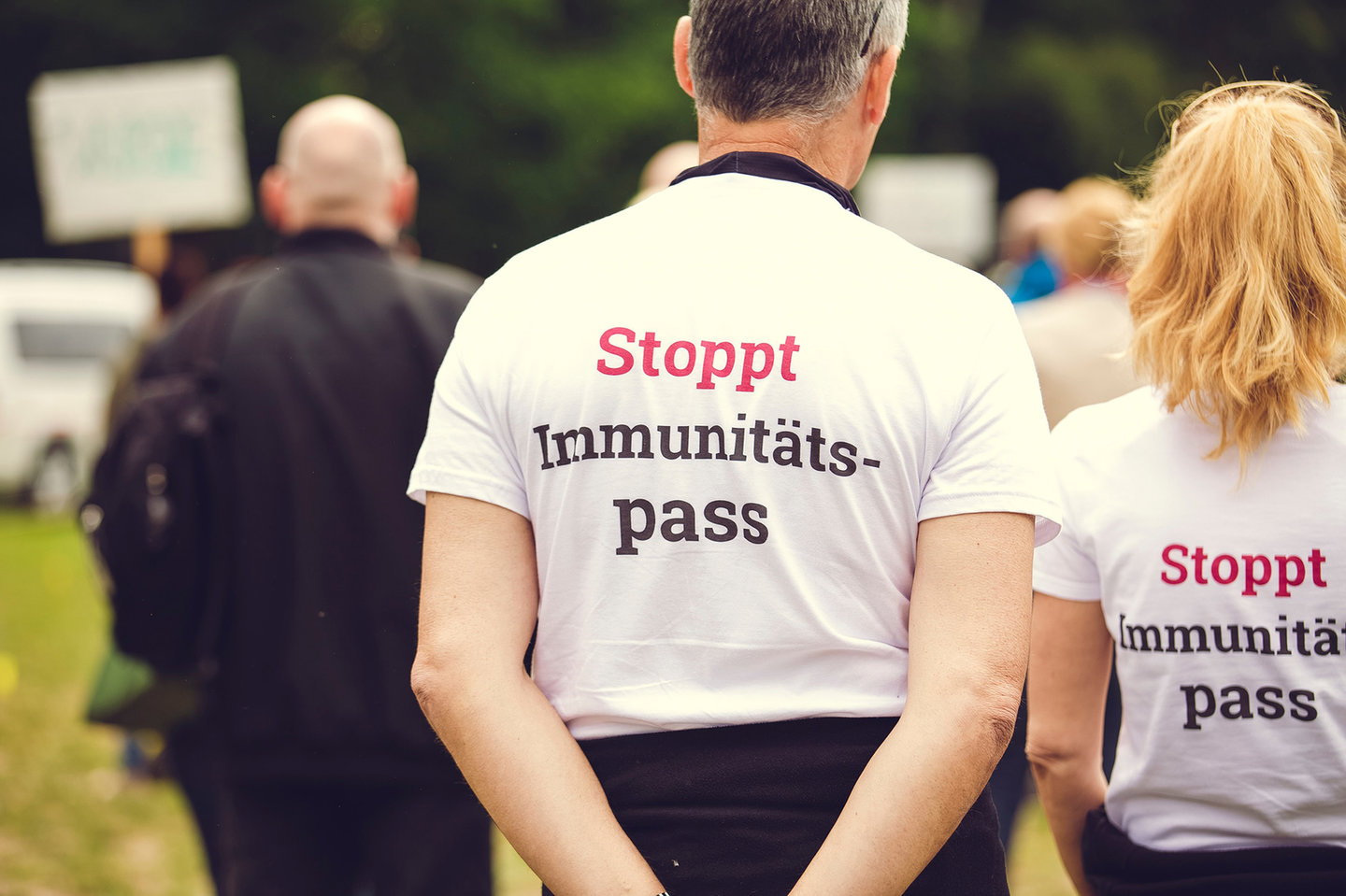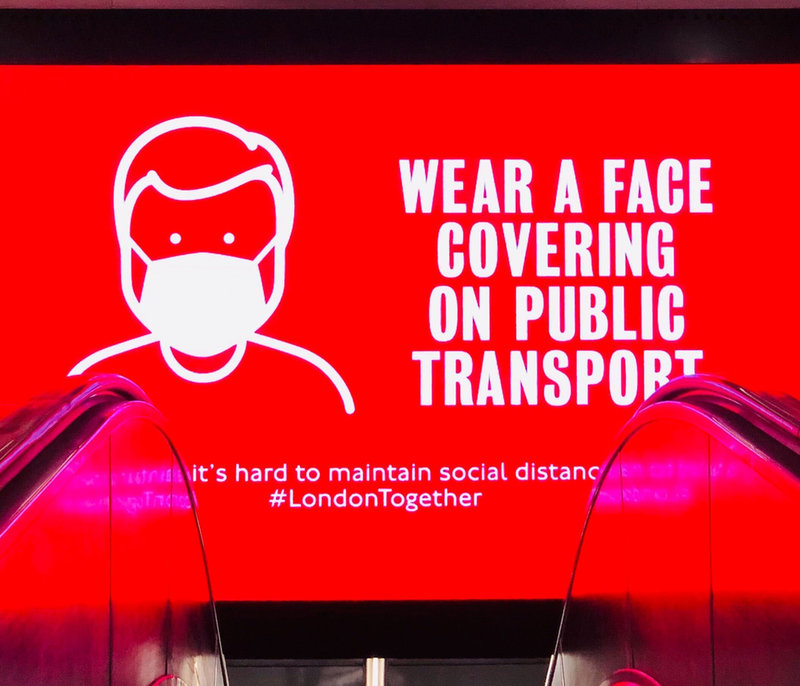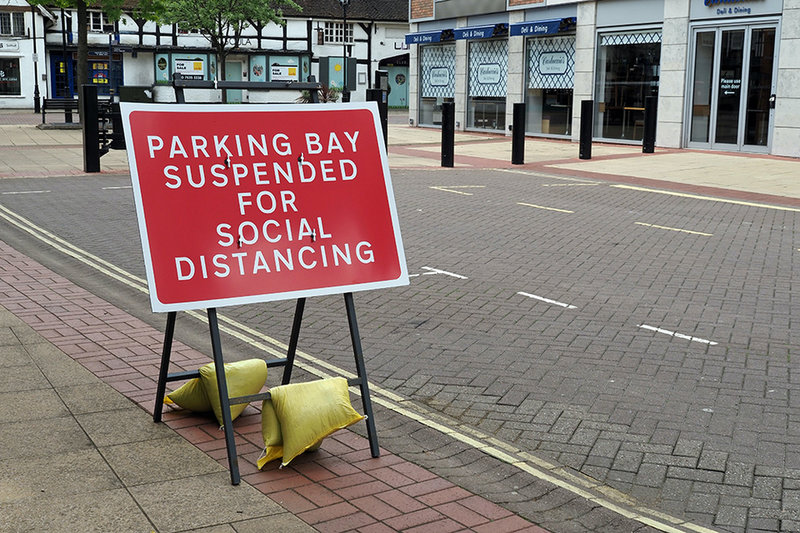Privacy
Immunity Passports:
A Path Out of Lockdown or the Road to Discrimination?
Immunity passports are being touted as a key tool to help resume normal business operations in the post-pandemic world, but there are serious concerns about the technology. Ellen Daniel explores the issue

It's 2021. In the wake of the coronavirus pandemic, lockdown restrictions have been relaxed. Restaurants, offices and airports are open once more, but your ability to access them is dependent on an app on your smartphone. An immunity passport, with a colour-coded system, indicates whether or not you are immune to Covid-19.
This scenario could be one of the solutions to relaxing social distancing measures, which by many estimates could still be in place in the UK at the end of the year.
Immunity passports
The concept behind immunity passports, or antibody certificates as they are sometimes known, is a means of verifying that an individual has had and recovered from Covid-19 and therefore, in theory, has the antibodies needed to be immune from catching the virus again.
According to the UK Government's Centre for Data Ethics and Innovation, a number of governments around the world have indicated that they could implement some form of immunity certificate in the future, as a means of reopening the economy while ensuring public health is not put at risk.
“The Chilean government has announced plans to roll out certificates confirming that the holder is ‘freed from all types of quarantine or restriction’.”
For example, the Chilean government has announced plans to roll out certificates confirming that the holder is “freed from all types of quarantine or restriction”, according to Paula Daza, sub-secretary of Chile’s Health Ministry.
ImmunityPassport, an app developed by the Back to Work group led by TransferWise, that allows users to "securely access various Covid-19 test results, get a probabilistic assessment of your immunity status and then share it with employers, officials or family members" is also being trialled in Estonia.
However, Harsh Sinha, the CTO of TransferWise, told Wired that the pilot will not be expanded until more robust evidence around immunity and testing exists.

Image coutesy of Étienne Godiard on Unsplash
Unlocking the economy
With the UK economy shrinking by 20% in April, many countries are looking for ways to 'unlock' their economies, with immunity passports presented as a possible way to do this. Others have pointed out that it could be a way of enabling emergency services workers to verify they are safe to work in environments where infection risk is high.
According to data from GlobalWebIndex, 11% of UK and US consumers say immunity passports would boost travel confidence.
However, the concept of immunity passports has proved controversial.
“If individuals assume they are immune after recovering from Covid-19, they may risk worsening the spread of the virus by ignoring public health advice.”
In April, the World Health Organization warned that there is “currently no evidence that people who have recovered from Covid-19 and have antibodies are protected from a second infection” saying that at this point, there is not enough evidence for antibody-mediated immunity “to guarantee the accuracy of an immunity passport”.
It also warned that if individuals assume they are immune after recovering from Covid-19, they may risk worsening the spread of the virus by ignoring public health advice.
Furthermore, the accuracy of antibody tests has been called into question, with antibody tests "not 100% accurate on all measures" according to Fullfact.
The practicalities of administering the widespread antibody testing, as well as ensuring that those without access to technology are not excluded are also potential barriers to their use.
A tech solution
Nonetheless, companies from across the tech world are coming up with solutions for the form immunity passports could take, how an individual's immunity status could be verified and whether biometrics will be incorporated.
Many have turned to adapting their existing technology to fit this purpose. AI-based identity company Onfido announced last month that it is partnering with Swiss travel tech startup Sidehide on the development of immunity passports to be integrated into Sidehide’s hotel booking platform.
The company, which in April announced that it had raised $100m in funding, has also submitted a proposal to the UK government for its technology to be incorporated into a possible future immunity certification scheme in the UK.
“Many have turned to adapting their existing technology to fit this purpose.”
Digital health company Circle Pass Enterprises has also signed a deal with cybersecurity firm VST Enterprises to create a secure digital health passport designed to “manage a safe return to work, life, and safe travel”.
When it comes to the UK, German identity verification startup IDnow is in talks with the UK government on the possibility of immunity passports becoming a reality.
The company uses AI to verify whether ID documents are genuine, carrying out biometric checks to match the picture on the ID to the person applying, and then conducts a short video interview.
This technology is currently used by over 200 companies, and has been submitted to the UK government as a potential way of verifying immunity passports.
“It's the government's job to ensure that no one is at risk”
Roger Tyrzyk, head of sales UK/I at IDnow, told Verdict that the company is waiting to hear back on whether the government will move forward with using its technology.
Tyrzyk explains that IDnow would not develop the immunity passports itself, but would make its identity verification technology available to the government to use in its own platform.
“We are just focusing on identity verification. And in my opinion the government should essentially develop the platform themselves and not just have one single private company to essentially provide the technology and provide the system, because let's say something happens with the IT system, and something goes down, it's something you can't control,” he says.
“So I guess the best way the government could do it is to plug in different technologies, different solutions in order to make it as efficient and as quick as possible as well.”
“It's still quite an early stage. If we look at the scientific grounds and the data that is available, I think we might still be far away from having a solution.”
According to Politico, the UK government currently has no formal plans to introduce immunity passports, but "there is interest in the idea" of immunity verification in some form. Health Secretary Matt Hancock has also said that “systems of certification” could be a route the government takes in the future.
However, Tyrzyk highlights that the concept of immunity passports is still at the early stages.
“It's still quite an early stage. If we look at the scientific grounds and the data that is available, I think we might still be far away from having a solution because at the end of the day, there are still lots of discussions about if the tests are hundred percent accurate, and how they can be handled and if they have expiry dates,” he says.
“It's the government's job to ensure that no one is at risk. We essentially have to wait for the science and the data that will provide exactly that; if [we] are either immune or if it's the same with influenza where you might get it again a few years later.
“At the end of the day, no one has a definite answer and obviously that has to be looked at first before we do anything like an immunity passport. Let's hope it never comes to that and we can successfully fight off Covid-19 and just return to normality a little bit more.”

Image coutesy of Julie-Ann Gylaitis on Unsplash
A “two-tier society”
As well as the inevitable security and privacy concerns that come with any form of sensitive health data, there are concerns about potential negative impacts on society that could arise from immunity passports.
A report by the Ada Lovelace Institute concluded that although “widespread testing is the only route through which the UK can exit the coronavirus crisis”, without a “robust scientific means of testing immunity” there is no “credible basis” for establishing immunity certification at this time. The institute also cited the risk of creating a “two-tier society” whereby those who are immune are able to return to work and access certain services while others are not.
Some have also voiced concerns that individuals may deliberately attempt to become infected with Covid-19 in a bid to bypass possible restrictions, and that immunity passports or certificates could open up the possibility of fraud.
“Immunity identification doesn't create any particularly useful information, it will distort our ability to decide who should be doing what.”
Speaking at a panel discussion at CogX, the Global Leadership Summit and Festival of AI and Breakthrough Technology, Professor Sir Jonathan Montgomery, Professor of Health Care Law at UCL, fears that the technology could be misused.
“[Immunity identification] doesn't create any particularly useful information, it will distort our ability to decide who should be doing what; we should be focusing much more on mitigations than status,” he said.
“HIV told us how even just the status of having had a test excluded some people from work, irrespective of any actual risk. It affected the availability of them to get life insurance and therefore their access to mortgages, housing etc. Immunity status has historically been used to determine not just whether you're safe to work, but actually, whether you are employable.”
“Discrimination and stigmatisation”
Tyrzyk explains that it will be the government's responsibility to ensure that the technology does not have negative societal impacts.
“At the end of the day, [discrimination] is something that the government will have to figure out in how they do the system and how they do the policies,” he says.
“Because we're just a small part in a massive ocean. And there's obviously all sorts of different things that you have to keep in mind. And if it leads to discrimination, it will have to be looked at, and there has to be a plan for how you can diminish that."
“We're talking about something where neither the science, nor the technology is established.”
The Ada Lovelace Institute has recommended that the UK government establish an independent group of advisors on technology in emergencies to “oversee the development and testing of any prospective digital immunity certification system” and that legislation is needed to ensure that the the technology does not lead to “discrimination and stigmatisation”.
Dr Claire Craig CBE, Provost at The Queen’s College Oxford, also highlights that stepping into this unknown area means creating legislation is challenging.
“We're talking about something where neither the science, nor the technology, is established,” she says.
“So, it would be very hard to create primary legislation, specifically for this set of proposals, in any way that could really be robust because we don't know what we're talking about.”
“Any rollout needs to follow strong scientific evidence”
That is not to say that, if deployed with care and based on robust evidence supporting immunity, the technology could not have positive outcomes. Short-term immunity certificates, or certificates issued for specific circumstances such as travelling abroad, could be a way of mitigating some of the implications of issuing immunity passports across the whole of society.
Husayn Kassai, CEO and co-founder of Onfio, says that short-term immunity certificates could enable certain people to support those most vulnerable in the community.
“Is there any benefit to society of individuals with antibodies being able to go into a higher risk scenario like a care home? Social distancing is not a fool-proof system and has challenges,” he says.
“Most of the efforts have predominantly been reactive ones. And so should there be more proactive options that put those with a lower risk of contracting the virus again, as they have immunity, back into the community?”
In order to address privacy concerns that may arise from immunity passports, René Seifert, co-founder of TrueProfile.io, believes that blockchain could also be part of the solution.
“A digitised blockchain-enabled immunity passport is arguably the most secure way to protect citizen data.”
“A blockchain-enabled immunity passport could work if the end-users provide proof of ID before testing and a permanent digital fingerprint of the signed certificate is placed on the blockchain, which is used by a verifier (such as an employer) to check its authenticity,” he says.
“Crucially, as sensitive medical data, such as Covid-related test results, is stored as a ‘fingerprint’, this offers a form of encryption and ensures that the digital certificate provided to the end-user is secure and tamper-proof by design, which means it is unalterably linked to their identity.
“Any rollout needs to follow strong scientific evidence that end-users cannot get infected again, or at least for a significant amount of time. Although a digitised blockchain-enabled immunity passport is arguably the most secure way to protect citizen data, to truly work effectively and be taken seriously, any rollout of this technology simply has to be dictated by science.”
Tyrzyk believes that immunity passports should be viewed as a potential option, rather than a definitive solution to post-pandemic recovery.
“The technology is there, it's readily available. So they could build something in a short time...but hopefully we won't come to that stage where we would need an immunity passport.”
Cover image courtesy of Markus Spiske on Unsplash
Back to top